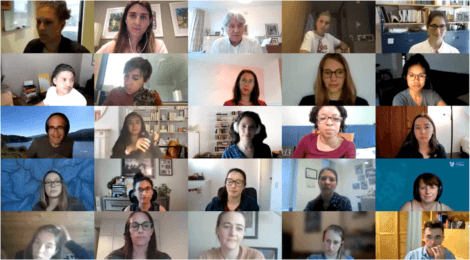August 10, 2021 – Thirty graduate students and researchers from around the globe learned about the linkages between mental well-being and physical health outcomes in a new five-day online course in mid-July.
The course, offered for the first time by the Lee Kum Sheung Center for Health and Happiness at Harvard T.H. Chan School of Public Health and the Research Department of Behavioral Science and Health at University College London, provided up-to-date knowledge on the ways that mental health can affect physical health. For instance, the course discussed research showing a connection between positive psychological well-being and reduced risk of heart disease, as well as a study that found that people who were more satisfied with life were more likely to use preventive health services such as cholesterol tests or mammograms. The course also taught skills in research evaluation and research methods.
Some of the topics addressed during the course included well-being during and after COVID-19, the influence of social and cultural activities on health and well-being, the complex relationship between income and well-being, and the connection between nature and well-being.
Lead faculty for the course were Laura Kubzansky, Lee Kum Kee Professor of Social and Behavioral Science and co-director of the Lee Kum Sheung Center for Health and Happiness, and Andrew Steptoe, professor of psychology and epidemiology in Behavioral Science and Health at University College London. Other presenters included 22 experts from disciplines such as economics, public health, epidemiology, psychology, biostatistics, and environmental health.
Kubzansky said the new course is aimed at building a network of scholars to help lead future research on the connections between positive mental health and physical health. “The course gives students the chance to explore new opportunities in the field, meet established researchers, and begin to build a network of peers with similar interests,” she said.
